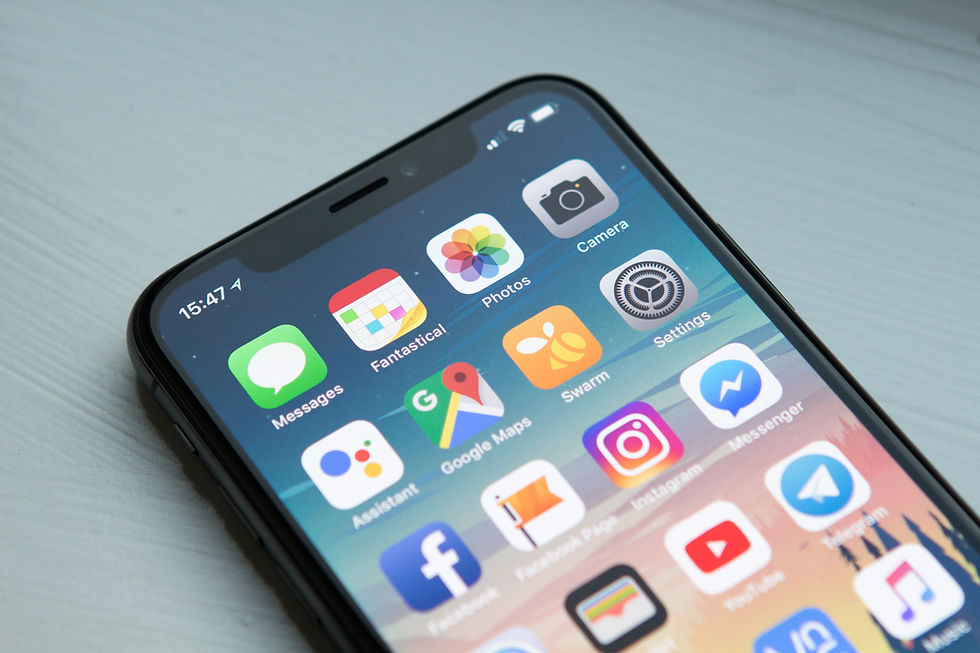Wondering What Is An NFT?
- Pravaah Consulting

- Feb 3, 2022
- 4 min read
Updated: Apr 19, 2022
Overnight, NFT captivated the world's attention! The majority of the hype around NFTs is around selling artwork in the form of these tokens. However, NFTs may be anything digital. For example, Twitter's founder and CEO, Jack Dorsey, sold his very first tweet (which was also the very first tweet ever) for more than $2.9 million. Mike Winkelmann, aka Beeple's digital artwork, sold for a stunning $69 million as an NFT. Wondering what an NFT is? It is a non-fungible token, a non-transferable unit of data held on a blockchain a type of digital account book or ledger.

What is an NFT?
An NFT is one-of-a-kind and cannot be exchanged for; that is how the term "non-fungible" comes into play. It is a digital asset that symbolizes physical objects such as art, music, in-game goods, and films. To identify the original copy, photography, music, movies, tweets, and even memes may be kept as an NFT. They are purchased and traded online, usually using cryptocurrency, and are typically encoded with the same underlying software as many cryptos.
NFTs are sold on a dedicated NFT marketplace. The markets are similar to eBay; consumers can either offer or acquire assets. To buy NFTs, you must first create a wallet on the site and load it with whichever cryptocurrency the marketplace trades on. To increase the demand for a particular NFT, markets may organize "drops" where they would designate a precise time when the assets will be available to generate greater interest. Some of the most popular platforms for purchasing and selling NFTs are Nifty Gateway Foundation VIV3, BakerySwap, and Axie Marketp.
Why a sudden buzz about NFT’s?
They have existed since 2014, but NFTs are gaining popularity because they are becoming a popular way to trade in digital artwork. Virtually endless in quantity. In theory, shutting off supply should increase the value of a particular asset if it is in demand. Still, many NFTs, being digital creations, already exist in some form somewhere, like video clips from NBA games or versions of digital art that are already floating around on Instagram. So subsiding the supply to change the magnitude of the demand isn't a question here!
To sight a few examples:
For example, famed digital artist Mike Winklemann, better known as "Beeple," created a composite of 5,000 daily drawings to produce possibly the most famous NFT of the present, "EVERYDAYS: The First 5000 Days," which sold for a record-breaking $69.3 million at Christie's.
Beeple sells these works as NFTs, digital collectibles that employ blockchain technology for authentication. An NFT can take any shape, but for Beeple, it often takes the form of a picture or video clip, sometimes with a real object attached, and is validated by a digital signature on a blockchain. In an increasingly digital environment, NFTs brilliantly answer to the art industry's demand for identification and provenance by permanently attaching a digital file to its originator. It distinguishes digital artworks and, as a result, increases their resale value. The speculative market for NFTs has exploded in the previous years and continues to expand.
Why do people want to spend millions of dollars on something that can be readily screen-shotted or downloaded? Well, this is because NFT enables the buyer to retain ownership. Collectors prize "digital bragging rights" almost as much as the thing itself.
What is Fungible?
Physical currency and cryptocurrencies are both "fungible," which means they may be traded or swapped for one another. They're also worth the same amount—one dollar is always worth another dollar and one Bitcoin is always worth another. The fungibility of cryptocurrency gives it a reliable method of executing blockchain transactions. NFTs transform digital works of art and other collectibles into one-of-a-kind, verifiable assets that are easy to trade on the blockchain.
To make it further clear, here are some handy pointers:
How to invest in NFT: Due to their widespread appeal, NFTs are widely purchased and traded by the majority of the digital community. NFTs as an investment is a highly safe method to make some money; the return depends on the asset's lifetime and luck. Some NFT investors have firsthand knowledge. However, it is a worthwhile investment in the long run.
Meaning of NFT: Simply, a token that is not fungible. NFT is for a non-fungible token, implying it's a one-of-a-kind digital asset that belongs to you and you alone. The most popular NFTs currently contains artwork and music, but they may also incorporate movies and tweets
How does NFT work: NFTs are individual tokens that contain helpful information. They are purchased and sold like other physical sorts of art since the market and demand mainly determine their worth. The unique data of NFTs makes it simple to verify and authenticate their ownership and the transfer of tokens between owners.
NFT means Non-fungible tokens, or NFTs, are cryptographic assets on a blockchain that include different identification codes and metadata that identify them from one another. They cannot be traded or swapped at equivalency, unlike cryptocurrency.
NFT crypto: Non-fungible tokens, or NFTs, are blockchain-based cryptographic assets with unique identification codes and information that distinguish them from one another. Unlike cryptocurrency, they cannot be exchanged or swapped at equivalency.
What is the NFT marketplace?: NFT is a market that has brought significant potential to corporations, investors, consumers, and everyday people.
Experts suggest that the blockchain business is poised to transform the world, owing to the rapid growth of the sector in the last few years; 2022 will be an even greater year for NFTs, they predict!
To learn more about NFT, and for more such queries related to digital marketing, please do visit our digital marketing company. Our team of experts would be happy to help.



